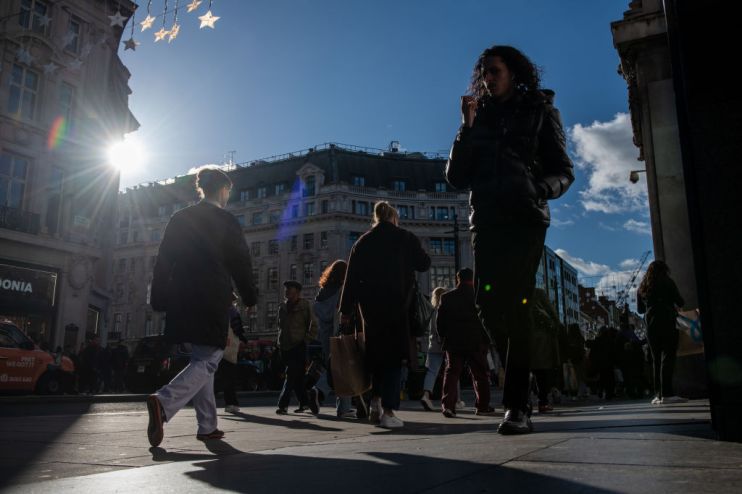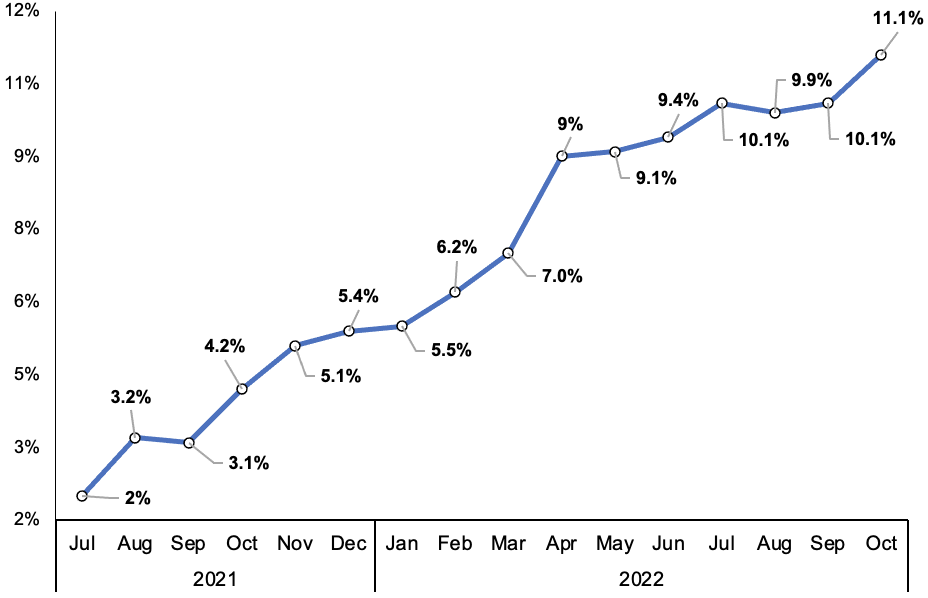UK slumps to bottom of G7 economy league next year, OECD predicts

The UK economy will languish behind its rich counterparts next year amid a tough inflation surge driven by worker shortages and an “untargeted” energy support package, a new report reveals.
Britain’s economy will shrink 0.4 per cent next year, the worst performance of any country in the G7, according to the Organisation for Economic Co-operation and Development (OECD).
In fact, out of the broader G20 group, Britain is only ahead of Russia, which has been frozen out of the global economy through sanctions in response to its invasion of Ukraine.
And, in 2024, the UK will squeeze out the worst growth in the G7 at just 0.2 per cent.
A bigger and more persistent inflation problem will result in the UK falling behind its rich peers. Germany is the only other country in the G7 that will suffer an economic contraction next year.
The OECD reckons inflation will stay at nine per cent early next year. It will still be above the Bank of England’s two per cent by the end of 2024.
Prices are up 11.1 per cent in the UK over the last year, the quickest acceleration in 41 years, driven by soaring energy prices fuelled by Moscow’s illegal invasion and a shortage of workers.
Inflation has surged over last year in UK

Firms are competing to secure workers from a shallower worker pool, pushing up wages, which economists argue can embed high inflation in an economy over the long-run. There are around 900,000 fewer available workers in the UK since the pandemic, mostly due to long-term sickness.
“A prolonged period of acute labour shortages could force firms into a more permanent reduction in their operating capacity or push up wage inflation further,” the OECD said.
The organisation of rich nations also slammed the £2,500 energy price cap for being “untargeted” and removing incentives for households to cut energy consumption.
“Better targeting of measures to cushion the impact of high energy prices would lower the budgetary cost, better-preserve incentives to save energy, and reduce the pressure on demand at a time of high inflation,” the report said.
The Bank of England will have to keep hiking interest rates aggressively to a peak of 4.5 per cent to offset the government subsidising Brits’ energy bills, the OECD said.
Former prime minister Liz Truss launched a £2,500 energy price for two years in her first few days in office.
Now chancellor Jeremy Hunt has scaled down the package to £3,000 from April and cut it to a year. Poorer households will receive one-off payments, meaning the new package is much more targeted.
Last week, the Office for Budget Responsibility warned of a coming year-long recession and that the economy would contract 1.4 per cent next year. While more optimistic, the OECD said unemployment is on course to peak at five per cent, around 1.5 percentage points higher than present.
The OECD reckons the UK will tip into a recession, running against its global outlook.
Its “central scenario is not a global recession, but a significant growth slowdown for the world economy in 2023, as well as still high, albeit declining, inflation in many countries,” the report said.
Global growth will slow to 2.2 per cent next year.